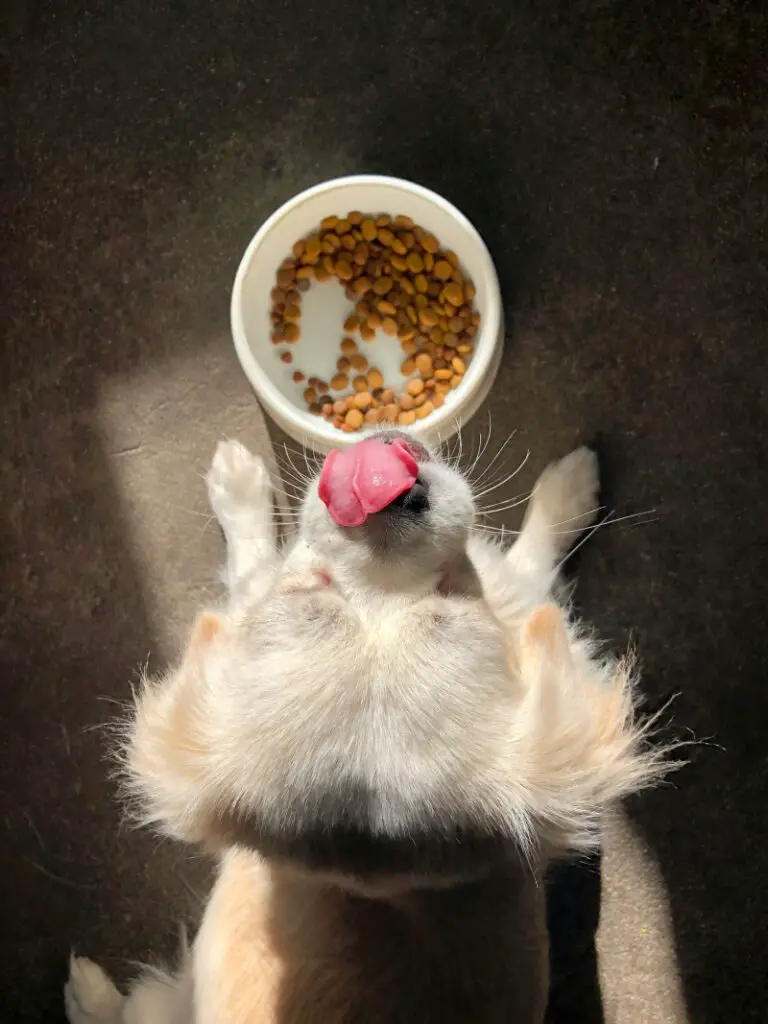Rich in nutrients such as calcium, protein, and probiotics that support digestive health, yogurt is a staple in the human diet. It is widely available in numerous presentations and varieties. Being a product of regular consumption, sometimes daily, it is normal to wonder if our dogs can eat it. Is yogurt good or bad for dogs?
In this Sweet Doggo publication, we explain everything you want to know about dogs and yogurt: consumption, benefits, risks, and frequently asked questions of your interest.
Table of Contents
Can dogs eat yogurt?
As long as he is not lactose intolerant, a dog can safely eat plain yogurt. Not only is it a protein food and low in carbohydrates, but it also promotes good digestive health thanks to its contribution to probiotic bacteria. Moderate servings of yogurt are great to supplement a regular canine diet.
It should be noted that although it is not considered a toxic food, some dogs have trouble digesting yogurt and other dairy products.
Is yogurt good for dogs?
In addition to being a tasty treat, plain yogurt can have benefits for dogs. Being a protein food, it helps to complement the daily protein intake. Its calcium content promotes the good health of teeth and bones. Likewise, the probiotics in yogurt contribute to a healthier gut microbiome, and therefore a stronger immune system.
For dogs with food allergies to meat, Greek yogurt is a good substitute source of protein.
Specifically, live bacteria strains Lactobacillus, Bifidobacterium, and Streptococcus Thermophilus, can benefit the function of the digestive system.
Yogurt provides essential vitamins and minerals, such as B vitamins, magnesium, phosphorus, zinc, potassium, and selenium.
Something that many ignore is that it also contains a certain amount of water. In fact, adding 1-2 tablespoons of yogurt to your dog’s food is a great way to add moisture to your dog’s diet.
From puppies to seniors, any dog can benefit from yogurt. Just make sure you use it sparingly and always pick the right kind.
Note. Consult your veterinarian if your dog has a known allergy to other dairy products (milk, cheese, cottage cheese), is under medical treatment, or has any health conditions.
What types of yogurt can dogs eat?
As an owner, it’s important to keep in mind that not all yogurts are created equal. Dogs can’t eat just any kind of yogurt; They should only consume those that are recommended.
In general, these are the best yogurt options for your dog:
- Natural yogurt, without added flavorings or sweeteners
- Plain low-fat yogurt
- Greek yogurt without artificial flavors or colors
In any case, it is advisable to give them a yogurt containing live bacteria culture.
What yogurts should not eat?
Based on the above, dogs should never eat yogurts that are sugary, contain sweeteners (natural or artificial), flavors, preservatives, fruit, granola, or other common additives.
One of the most important precautions when sharing yogurt with your dog is to prevent them from eating it if it contains xylitol. Xylitol is an artificial sweetener that is highly toxic to dogs. It is usually very common in commercial products.
As a general rule, avoid giving your pet yogurt without first checking the ingredient list. Here is the list of the best brands of yogurt for dogs, you can also ask your vet for suggestions.
How to give yogurt to a dog?
Yogurt can be incorporated in many ways in canine food. The most common option is to add a serving of plain yogurt to regular dog food, but it’s also a great ingredient for making or topping treats.
Consider the following options:
- Prepare frozen yogurt cubes. You can make plain cubes (yogurt only), or mix them with small pieces of fruit/vegetables ( banana, strawberry, cooked carrot ). You can even mix it with small pieces of meat.
- Add a mixture of yogurt and peanut butter to the stuffing of his favorite Kong toy.
- Make some homemade cookies with oatmeal, egg, banana, and Greek yogurt.
What is the recommended portion of yogurt?
That your dog can eat yogurt does not mean that consumption should not be moderate. How much yogurt can dogs eat?
Since yogurt is considered a type of treat, dogs should eat it in moderation, always as part of a balanced and nutritious diet. The proper portion may vary depending on the type of yogurt and the size of the particular breed, but should never exceed 10% of the recommended daily calories.
It is recommended to review the nutritional table of yogurt to know the number of calories and fat content that are in a serving. This helps to calculate the most suitable amount according to the size of your dog.
For example, 1 ounce of plain nonfat yogurt typically provides about 15 calories. While a medium dog might eat ½ – 1 ounce (1 or 2 tablespoons) of yogurt a day, a large or giant dog might eat twice that amount.
When portion size is not controlled, even low-fat yogurts can cause weight gain in dogs.
It may interest you: What Vegetables Can Dogs Eat? Which ones are prohibited?
Can my dog eat yogurt every day?
Dogs that are not lactose intolerant can consume yogurt as part of a nutritious and above all, balanced diet. Although some dogs can eat moderate servings of yogurt every day with no problem, it’s best not to eat it every day. A good dog diet should be varied and include different sources of protein, micronutrients, and fat.
Consider giving them yogurt about 2 times a week.
Contraindications and side effects of yogurt in dogs
Natural yogurt, without sweeteners or artificial additives, is a food suitable for dogs; Even so, there are contraindications and adverse effects that every owner should be aware of before giving it to their dog.
1. Upset stomach
High-fat yogurts can be difficult to digest, thus causing gastrointestinal problems. When a dog gets sick to his stomach from eating too much fat, he is likely to have diarrhea, vomiting, abdominal swelling, lack of appetite, weakness, etc. Likewise, excess fat can increase the risk of developing pancreatitis.
2. Lactose intolerance
Many adult dogs are known to have trouble digesting yogurt and other dairy products (milk, cheese, ice cream) because they are lactose intolerant. Lactose is the sugar present in cow’s milk. In case of ingesting yogurt with lactose, a sensitive or intolerant dog may present gastrointestinal symptoms, including gas, vomiting, and diarrhea.
If so, consider yogurt as a totally contraindicated food.
3. Overweight
If the dog eats more yogurt than is recommended based on his daily caloric intake, the result can be unwanted weight gain. This is especially true of high-fat yogurt or sweetened yogurts. Over time, the pet may become overweight.
4. Risk of xylitol toxicity
Yogurts that do not contain sugar, but have been artificially sweetened, can also put dogs’ health at risk. The main warning in this regard has to do with the sweetener xylitol, which is potentially poisonous to the canine organism.
Is it the first time that your dog is going to eat yogurt? Make sure to introduce it little by little, giving it a small amount. Closely monitor his reaction to check that he does not present adverse symptoms.



